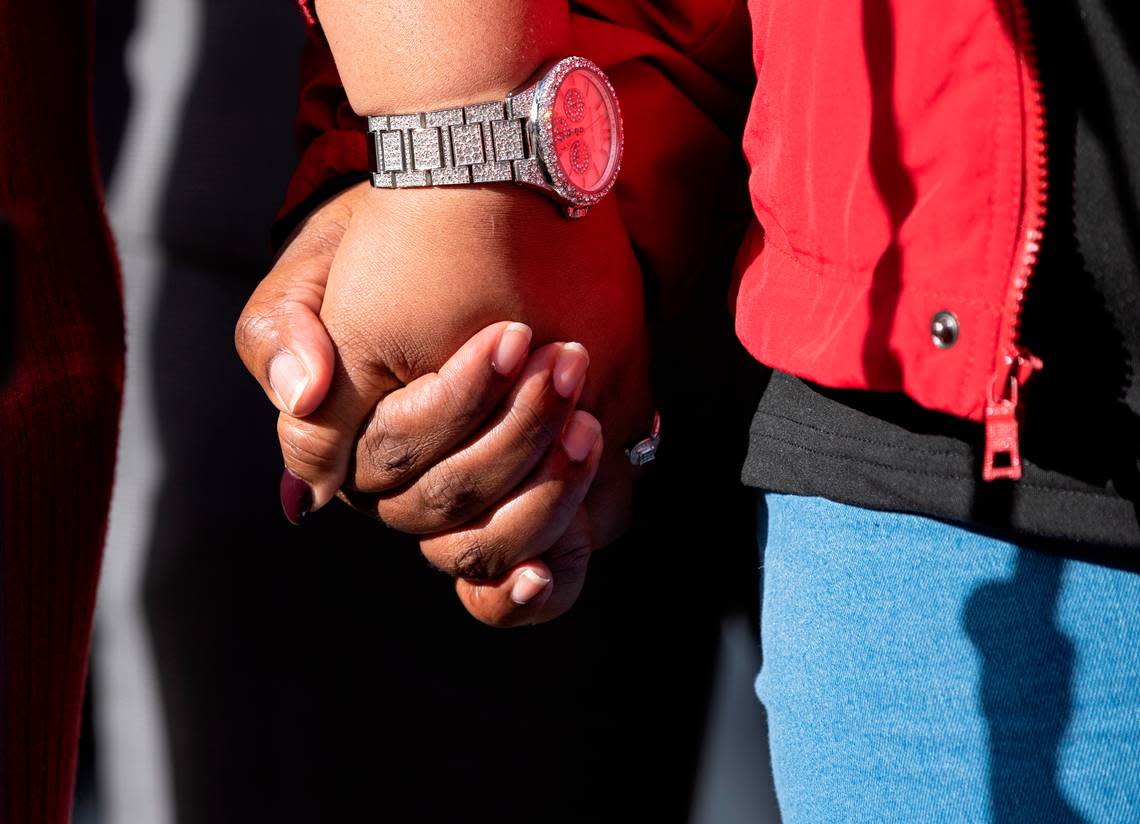Raleigh settles lawsuit linked to fired Raleigh detective’s drug raid on wrong home
The city of Raleigh agreed to pay three families a total of $350,000 in a federal lawsuit that contends a now fired Raleigh police detective and others conspired with others to fabricate drug trafficking allegations. That resulted in an illegal raid, excessive force and the false imprisonment of Black women and children, according to attorneys.
This is the second lawsuit settled by the city that involved former detective Omar Abdullah and confidential informant Dennis Williams. The first lawsuit was settled for $2 million in September 2021.
A third lawsuit is still pending.
Working together, Williams and Abdullah sent about a dozen black men to jail on trafficking charges from Nov. 29, 2019, to May 21, 2020, for drugs that repeatedly turned out to be fake, according to court documents.
The plaintiffs include Yolanda Irving, a mother of five who drives a Wake County bus for special needs children, and her three children who were home the day police searched the house. Other plaintiffs include Irving’s neighbor Kenya Walton, her four children and another teen, who were all detained as part of the search on Irving’s apartment, according to interviews and the lawsuit.
The settled lawsuit was filed against the city of Raleigh, Abdullah, his former colleagues and city officials.
The settlement is contingent on final approval from Raleigh City Council, the city’s insurance carrier and the federal courts.
“It’s been a very long and stressful journey,” said Irving in a media release from her attorneys. “We are still dealing with the trauma caused by this horrible situation, but after a long 3 years, justice was finally served.”
Since the lawsuit was filed more than a year ago, the plaintiffs have successfully pushed for revisions to Raleigh Police Department policies and procedures, including the use of confidential informants in drug operations and prohibiting warrants in which police enter without warning, according to a media release from the plaintiffs’ attorneys.
“We hope that the City of Raleigh continues to examine its policies related to the use of confidential informants and the execution of search warrants to ensure that nothing like this injustice ever happens again,” said Abraham Rubert-Schewel with the law firm Tin Fulton Walker & Owen. The plaintiffs were also represented by attorneys from civil rights nonprofit Emancipate NC.
The families say Raleigh police entered Irving’s and Walton’s apartments in May 2020 unannounced wearing tactical gear, pointing assault rifles at and detaining innocent women and children as young as 12, including a partially paralyzed youth.

After police raided the apartments, Abdullah provided a search warrant to Irving. It had the right address but a picture of an apartment door was not hers. Abdullah left offering no explanation, Irving said in an interview last year.
“I never got an apology. I never got anything from the Raleigh Police Department,” Irving said. “You have my kids scared. I am petrified. And you are going to tell me I could do whatever? No, no, no, ” she said. “On top of that, you are running behind my son with a gun. I could have lost him.”
The police raid was a result of an Abdullah-led investigation involving Williams, who was suspended as a confidential informant the day after the raid. Abdullah was fired from the police department in October 2021. He was charged obstruction of justice in July. Williams faces five counts of obstruction of justice related to his work as an informant.
The raid followed months of investigations in which Williams claimed he bought heroin but that ultimately tested negative for control substances, the lawsuit states.
“RPD officers ... informed Abdullah on numerous occasions that the alleged drugs were not heroin but brown sugar or some other substance,” the lawsuit states. Officers reported the scheme to Abdullah’s supervisor, Sgt. William Rolfe, who never intervened, the lawsuit states.
Virginia Bridges covers criminal justice in the Triangle and across North Carolina for The News & Observer. Her work is produced with financial support from the nonprofit The Just Trust. The N&O maintains full editorial control of its journalism.
